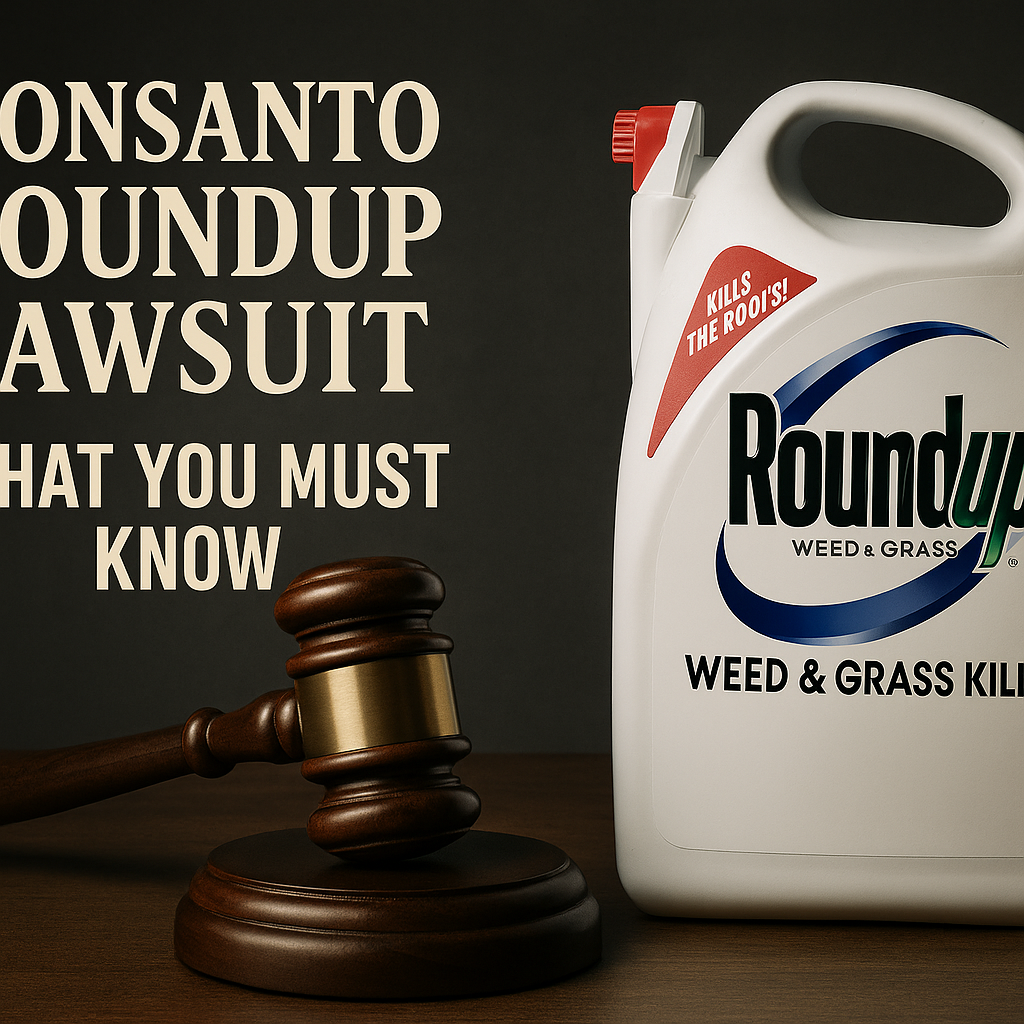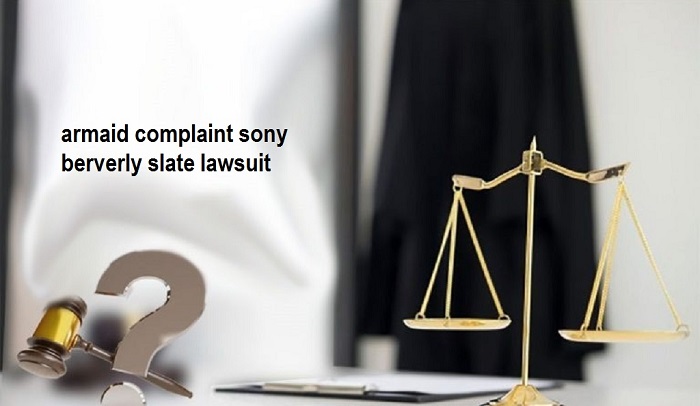Every year, more people search to understand the Monsanto Roundup lawsuit and what it means for them. This legal battle involves thousands of claims that Roundup, a common weed killer made by Monsanto (now Bayer), causes cancer. Plaintiffs say that long-term exposure to glyphosate, the herbicide’s active ingredient, led to non-Hodgkin lymphoma and other serious health problems. The lawsuit highlights growing concerns about chemical safety, corporate responsibility, and the right of consumers to know the risks they face.
Why Are People Suing Monsanto Over Roundup?
Monsanto, acquired by Bayer in 2018, is now at the center of one of the most significant product liability cases in U.S. history. Thousands of individuals are suing the company, claiming that exposure to Roundup—one of the most widely used herbicides in the world—caused them to develop cancer. Most plaintiffs were regular users of Roundup in agricultural, landscaping, or maintenance work and later developed non-Hodgkin’s lymphoma.
The core of the lawsuit is glyphosate, the main chemical in Roundup. It is highly effective in weed control but may also pose serious health risks. Scientific concerns increased after internal documents suggested Monsanto knew about possible dangers and tried to influence scientific research. Plaintiffs argue that the company failed to warn consumers and actively suppressed contrary evidence. This lawsuit reflects broader concerns about how corporations handle chemical safety and how regulatory bodies monitor long-term product risks.
What Makes Glyphosate So Controversial?
Glyphosate disrupts an enzyme essential to plant growth. Its effectiveness made it popular in commercial farming and home gardening alike. However, health experts began raising red flags after long-term studies linked glyphosate to cellular changes and tumor development. In 2015, the World Health Organization’s International Agency for Research on Cancer (IARC) classified glyphosate as “probably carcinogenic to humans.” This sparked international debate. U.S. agencies, including the EPA, continue to claim glyphosate is safe when used as directed. This contradiction has confused consumers and created friction between scientific institutions.
By 2024, the European Union extended glyphosate approval for another ten years. Over one million citizens signed a petition calling for a ban. Public protests in Berlin, Paris, and Madrid forced several governments to reevaluate national pesticide policies. Consumers now face the difficult choice of trusting corporate science or demanding deeper transparency.
How Many Roundup Lawsuits Has Bayer Inherited?
Bayer’s purchase of Monsanto brought more than just agricultural patents—it came with an avalanche of legal exposure. As of 2025, over 125,000 lawsuits have been filed against Bayer, claiming that Roundup exposure caused cancer. Plaintiffs range from small-scale gardeners to professional groundskeepers.
Here’s what we know:
- Bayer has paid more than $11 billion in settlements so far.
- Over 50,000 cases remain active across multiple states.
- Some of the largest case clusters are in California, Missouri, and Pennsylvania.
Bayer continues to deny that glyphosate causes cancer. Yet, jury after jury has ruled otherwise. The legal trend now leans heavily in favor of the plaintiffs.
What Are the Biggest Verdicts So Far?
The most notable Roundup trials have not only resulted in large payouts but have also exposed Monsanto’s internal practices. Below are key verdicts that shaped public opinion:
- Dewayne Johnson (2018): As a California school groundskeeper, Johnson was exposed to Roundup regularly. He developed terminal cancer and won $289 million. The amount was later reduced, but this case was the first major blow to Monsanto’s defense.
- Edwin Hardeman (2019): A longtime home user of Roundup, Hardeman developed cancer and was awarded $80 million. His case helped structure federal multidistrict litigation.
- Alva and Alberta Pilliod (2019): This California couple used Roundup for over 30 years. Both developed cancer and were awarded more than $2 billion, later reduced to $87 million. The verdict highlighted long-term exposure risks.
- Donnetta Stephens (2021): She used Roundup for years as a public school worker in Florida. The jury awarded her $87 million after she proved the herbicide caused her illness.
- Anonymous Landscaper (2025): A recent Pennsylvania case resulted in a $2.25 million award. This marked Bayer’s sixth consecutive courtroom defeat.
These cases reveal a consistent message: juries believe Monsanto prioritized profit over public safety.
Is There a Settlement Fund for Roundup Victims?
Yes. Bayer established a massive legal fund to settle ongoing and future Roundup claims. Initially announced in 2020, this fund has evolved as lawsuits continue.
The fund includes:
- $8.8–$9.6 billion for claims already filed.
- $1.25 billion to handle future cases.
- Support for independent panels researching the link between glyphosate and cancer.
In 2024, Bayer added another $1.5 billion after several new jury losses. These funds help resolve claims quickly and reduce further legal fallout. Victims who qualify may receive compensation to cover medical bills, pain, and lost wages.
Who Can File a Roundup Lawsuit Today?
Eligibility depends on three main conditions:
- You must have used Roundup regularly, either at home or work.
- You must have been diagnosed with non-Hodgkin’s lymphoma.
- You must have documentation proving both exposure and diagnosis.
People most at risk include:
- Farmers and agricultural workers using Roundup over multiple growing seasons.
- Landscapers and groundskeepers exposed without proper protective gear.
- Home gardeners who used Roundup frequently without knowing the risks.
Each state has its own filing deadlines. The sooner you act, the stronger your case may be.
How Do You Join a Roundup Lawsuit?
Filing a claim is simpler than many expect. Here’s how to start:
- Contact a qualified lawyer with experience in toxic torts or product liability. They will review your case.
- Collect your medical and purchase history. Receipts, prescriptions, and work logs help confirm your exposure.
- File the lawsuit as either part of a class action or as an individual plaintiff.
Many firms offer free consultations and operate on a contingency basis. That means they only get paid if you win. This makes legal support widely accessible.
What Does the Science Say About Roundup?
Scientific views remain split. But evidence linking glyphosate to cancer continues to grow.
- In 2024, a study in Environmental Health Perspectives found a 41% higher risk of non-Hodgkin’s lymphoma in frequent users.
- Glyphosate has also been linked to oxidative stress, hormone disruption, and damage to gut microbiota.
- Several animal studies suggest long-term glyphosate exposure leads to tumors and immune disorders.
Regulatory agencies like the EPA and EFSA argue glyphosate is safe when used correctly. But leaked Monsanto documents suggest efforts to manipulate some of these findings.
Most scientists now agree that more independent research is needed. Until then, public debate will continue.
Has Roundup Been Banned Anywhere?
Roundup is still legal in the U.S., but its use is being restricted. Resistance is growing at the local and international levels.
Recent developments include:
- California and New York cities banning glyphosate in public parks and schools.
- Costco, Home Depot, and Lowe’s pulling glyphosate-based products from shelves.
- France and Germany pledging full bans by 2026.
- Vietnam banning glyphosate imports and sales entirely since 2020.
In 2025, California proposed mandatory warning labels on glyphosate products under Proposition 65. If passed, this will add legal weight to cancer risk claims.
How Does This Lawsuit Affect Everyday Consumers?
Consumers now approach household products with greater caution. The Roundup case reminds people that long-term exposure to chemicals can have serious effects.
Shifts include:
- Increased demand for organic or chemical-free gardening products.
- Rising calls for truthful product labeling and testing.
- Stricter reviews for other pesticides and herbicides.
The lawsuit sends a clear message: companies must be transparent, and regulators must be vigilant. People want honesty over marketing.
What’s Next in the Legal Battle Over Monsanto Roundup lawsuit?
The fight continues. In 2025:
- Dozens of new trials are set to begin in Florida, Illinois, and New York.
- Bayer continues appealing past verdicts but also increases settlement offers.
- Lawmakers are debating national limits on glyphosate-based products.
Legal experts predict more billion-dollar settlements. Scientific discoveries and public advocacy will likely influence future court outcomes. This lawsuit is now one of the most important cases in product liability history. Its outcome will shape how companies handle chemical safety worldwide.
What Should You Do If You Used Roundup?
If you used Roundup and later developed non-Hodgkin’s lymphoma, act quickly. Contact a skilled lawyer to review your eligibility.
Keep these items safe:
- Medical records confirming your diagnosis.
- Proof of exposure, such as receipts, work records, or photos.
This isn’t just about compensation. It’s about protecting your rights and future generations. Consumers deserve to know what they’re using. Stay informed. Take action. And speak out when safety is ignored.
Frequently Asked Questions (FAQs)
What is the Monsanto Roundup lawsuit about?
The lawsuit claims that Roundup’s main ingredient, glyphosate, causes cancer. Plaintiffs argue Monsanto failed to warn users.
Who can file a Roundup lawsuit?
Anyone diagnosed with non-Hodgkin’s lymphoma after using Roundup regularly may qualify. Proof of exposure and diagnosis is required.
Has Roundup been banned in the U.S.?
No. Glyphosate remains legal under EPA guidelines, but many states and cities have imposed restrictions or labeling rules.
Is there scientific proof that Roundup causes cancer?
Some studies show a link between glyphosate and cancer. Others disagree. A 2024 review showed a 41% increased risk in heavy users.
How much money have victims received?
Verdicts range from $25 million to $2 billion. Bayer has paid over $11 billion in settlements, with more cases pending.
Can I still join the lawsuit in 2025?
Yes. Many firms still accept new cases. Legal deadlines vary by state, so contact a lawyer as soon as possible.
Ayesha Awais is a content writer for JudicialNexus.com, covering accident reports, injury-related news, lawsuits, and public safety updates. All content is informational in nature and based on publicly available sources.




